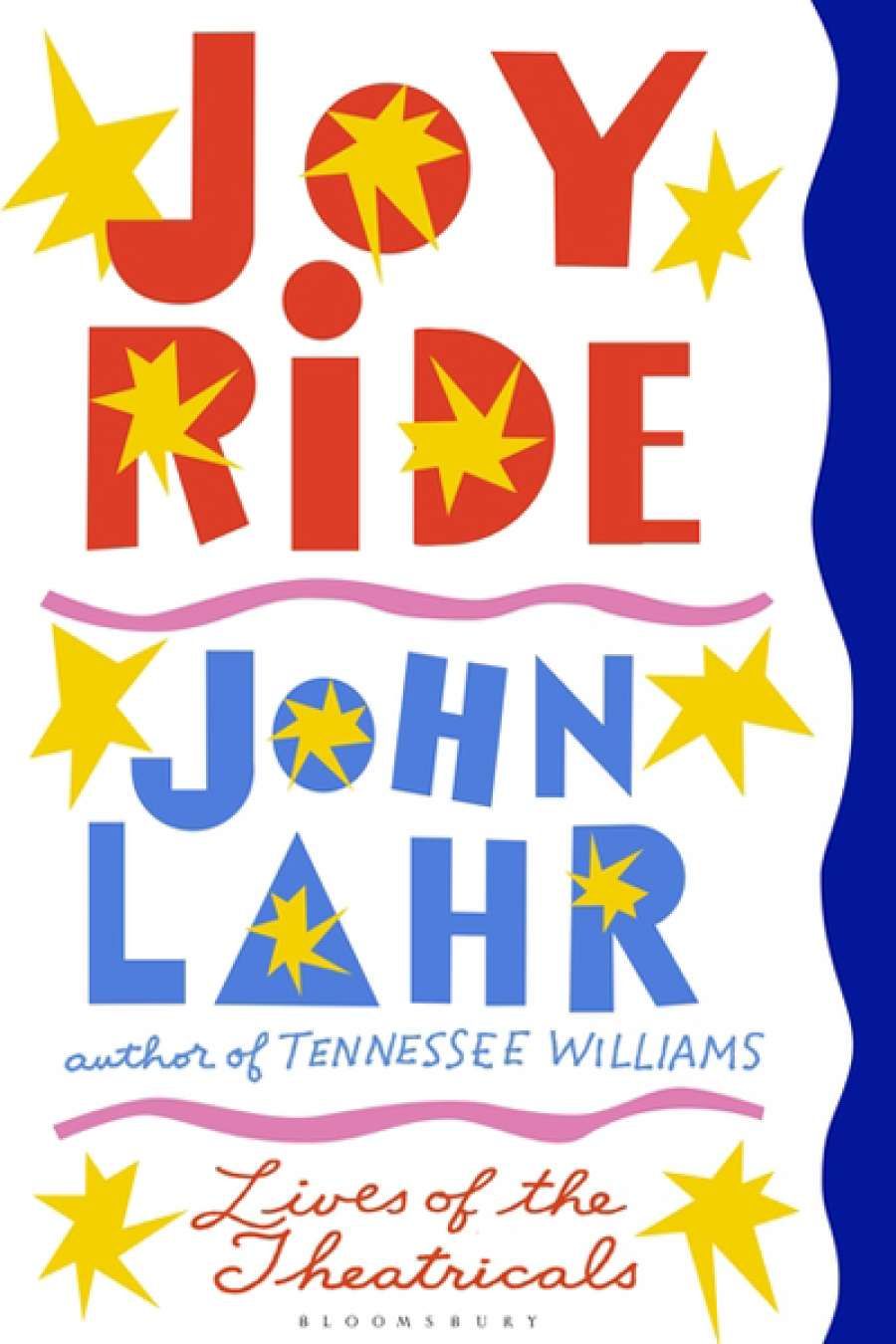
- Free Article: No
- Contents Category: Theatre
- Custom Article Title: Tim Byrne reviews 'Joy Ride' by John Lahr
- Book 1 Title: Joy Ride
- Book 1 Subtitle: Lives of the Theatricals
- Book 1 Biblio: Bloomsbury, $60 hb, 590 pp, 9781408868638
Many of the incontrovertible greats of modern drama are represented, from Arthur Miller and Harold Pinter to Tom Stoppard and Tony Kushner. Inclusion necessitates exclusion, and major playwrights such as Caryl Churchill and Sarah Kane are notably absent. White, Anglo-Saxon men dominate. This is hardly a criticism of Lahr but does shed a cold fluorescent spotlight on the theatre's tendency towards cultural homogeneity.
Collectively, the profiles may reinforce gender and racial imbalance, but individually they are fascinating: Clifford Odets's meteoric Marxist ascent, coupled with his bitter Hollywood demise; Sam Shepard's wildly anarchic early work juxtaposed with his sparsely autobiographical mid-period masterpieces; David Rabe's electrifying Vietnam War plays paving the way for his savage satire on the entertainment business, Hurlyburly. We get sharply observed insights into the lure of film by Neil LaBute and the slightly alarming ferocity of purpose informing the work of David Mamet.
Lahr, insistent and thorough, burrows deep for the germane detail or the telling observation that will illuminate the artist's world view. He is interested in the writer's methodology and work space, the intangible buried in the concrete. August Wilson 'does most of his pathfinding ... in a low-ceilinged basement, lit by neon bars, where he goes to sneak cigarettes, listen to records, and wait for his characters to arrive'. Lahr finds poignancy in David Rabe's 'sea of books – books in bookcases, books in piles, books stashed, according to subject matter, in dozens of black bags that litter the floor. Three writing desks, two computers, and chairs loom like islands in a literary deluge.'
 John Lahr
John Lahr
This preoccupation with method reveals something of Lahr's own world view; for him, meaning derives from subjective experience rather than from historic or artistic movements. Hence the focus on the subject's childhood and family dynamics, an emphasis on specificity over broader cultural context. This is Lahr's opposition to prevailing tendencies, a refutation of the kind of criticism that bangs on about paradigms and lenses while ignoring the individual's particular mode of expression, the motivation to create.
Not surprisingly, this is most evident with the subjects Lahr has known personally. Wallace Shawn, who is recognised most often for the film The Princess Bride (1987) but is actually a prolific and critically acclaimed playwright, has been a friend of the author since the 1970s. When they first met, Lahr 'sensed the familiar combination of power and panic which is the birthmark of a famous pedigree. The world we grew up in was a wonderful but worrying place, because there seemed no loss in it. We were equipped for pleasure but not for life.' Mike Nichols, who was born Mikhail Igor Peschkowksy, the son of a White Russian émigré, arrived in America already bereft. 'He'd lost his homeland, his language, his class pedigree, and, by the age of twelve, he would also lose his father.'
Lahr's interest here is only peripherally in the grand sweep of history. His true focus is on the ways in which personality is shaped and what effect this has on the subject's art. Fathers loom heavy over the book, as does legacy. Tom Stoppard, in his foreword to Kenneth Tynan: Theatre Writings (2007), refers to the famous English critic's reviews as 'what he wrote in lieu of an autobiography'. The same thing can be traced in Lahr's work. Lahr himself addresses the idea of legacy directly when he says that 'theatre is a transient game: great performances cannot be preserved; great plays close. All that is left is the memory of exhilaration and illumination. So, it seems to me, the responsibility of drama criticism is to provide a historical record.'
Joy Ride is an apt title; the thrill of movement comes paradoxically from sitting still in the dark. If there are odd repetitions – anecdotes that appear in profiles only to pop up again in subsequent reviews – there are also felicitous echoes. The book opens on the cabin Arthur Miller built in which to write Death of a Salesman. The goal was 'to sit in the middle of it, and shut the door, and let things happen'. It could be a metaphor for the theatre itself.


Comments powered by CComment